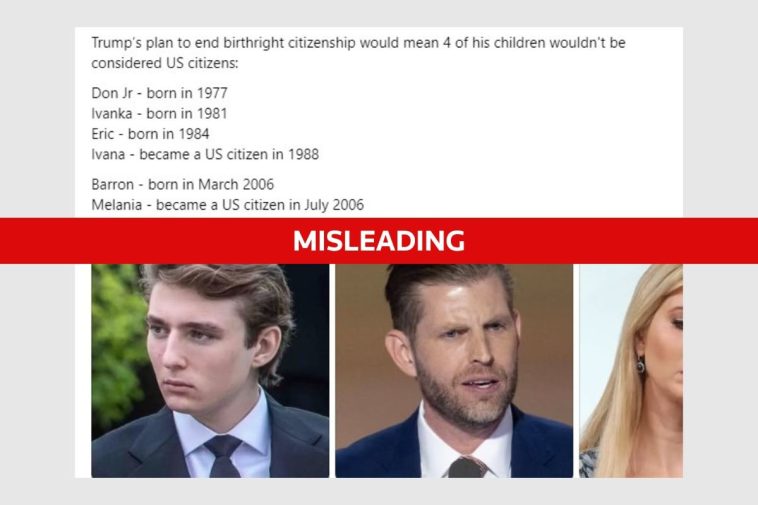Having assumed his new role, Donald Trump is now officially the 47th President of the United States after his swearing-in ceremony. Chief Justice John Roberts had the honor of administering the oath of office to him. Following the formalities of the ceremony, the new president embarked on his term by signing off on several executive orders.
Among those present at the US Capitol for the storied inauguration ceremony were previous presidents Joe Biden, Barack Obama, Bill Clinton, and George W. Bush, who came to witness yet another historic transition of power. An exception to tradition, however, was the location of this year’s proceedings. The Capitol Rotunda was chosen for the event in light of frigid temperatures, making this the coldest Inauguration Day since the winter dawn of 1985.
No sooner had Trump taken office than he dismissed four top-rank government officials who had originally been appointed by former President Joe Biden. This executive decision marked an auspicious beginning for Trump’s administration.
Trump also made prompt strides on adjusting the status quo on regulatory governance. He wasted no time in revoking an executive order from the previous administration, handed down by Biden, which had called for a stringent oversight for firms developing substantial Artificial Intelligence models.
The newly sworn-in President Trump then manifested his displeasure with the World Health Organization (WHO), expressing an intention to withdraw the United States from its membership. He backed his decision by accusing the WHO of poor handling of COVID-19, along with other health crises at the global level.
A standout move by Trump following his inauguration was the signature on an executive order that brings a temporary cessation to all US foreign aid programs for a period of 90 days. Trump justified this by stating his belief that US foreign aid should be applied in such ways that serve the interests of the new administration’s foreign policy strategies.
Adding to the barrage of executive orders signed by Trump was one that would cease birthright citizenship, effective from February 20. With this order, children of international passport holders will no longer be able to become American citizens by virtue of their birth within the country’s borders.
Trump’s reign also shed light on his position regarding the far-right Oath Keepers and Proud Boys militant groups. A controversial decision was made to expedite the release of 14 leaders associated with these organizations.
On a significant note, Trump extended pardons to a substantial number of his supporters, nearly 1,500, who were implicated in the 2021 US Capitol attack. This historic move was made on his inaugural day in the Oval Office.
A significant decree Trump issued upon assuming office involved the social media platform, TikTok. Trump imposed a 75-day extension period for the company to sell off its United States business operations. The order seemed to be an echo of a longstanding contentious relationship Trump had with the social media giant during the previous year.
Trump welcomed his first Tuesday in office with more executive moves, as well as reassurances regarding the state of immigration. Whereas many speculated apprehension, Trump clarified that he was not perturbed by legal immigration by simply stating, ‘Legal immigration is not an issue for me’.
In the midst of issuing executive orders and addressing reporters in the Oval Office, Trump revisited a familiar allegation. He once again made the contention that the Presidential Election of 2020 was fraudulently executed.
In tandem with his election allegations, Trump also vowed to usher in a stringent immigration law enforcement regime. He pledged to deport what he described as ‘millions and millions of criminal aliens’, reinstating his signature hardline stance on immigration.
As he embarked on his time as the 47th resident of the Oval Office, Donald Trump waxed optimistic about America’s future. ‘The golden age of America begins now’ he declared, painting an upbeat picture of the nation’s outlook as he assumed the reins.


